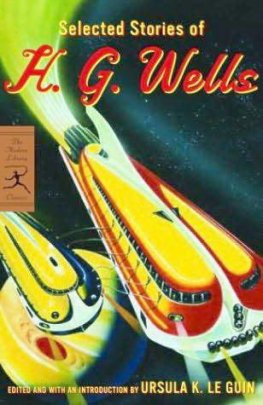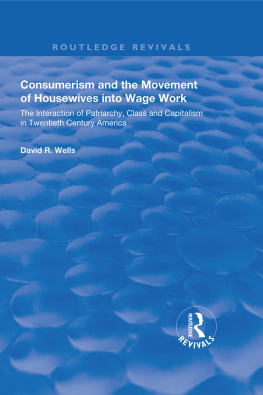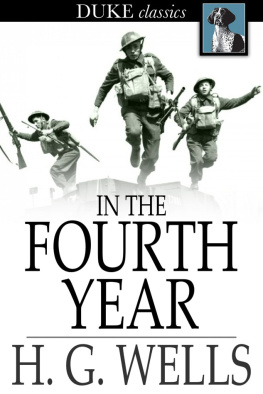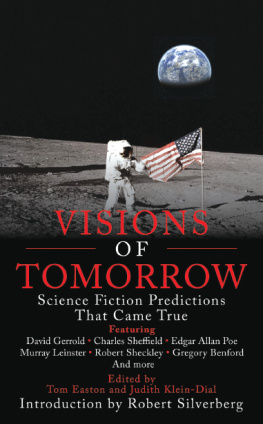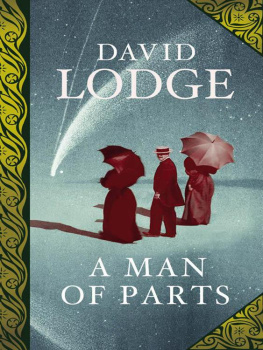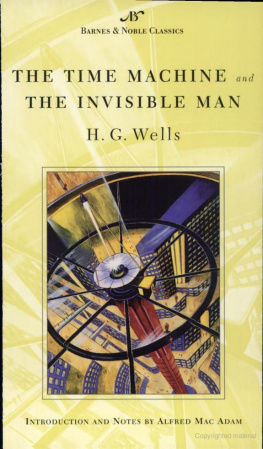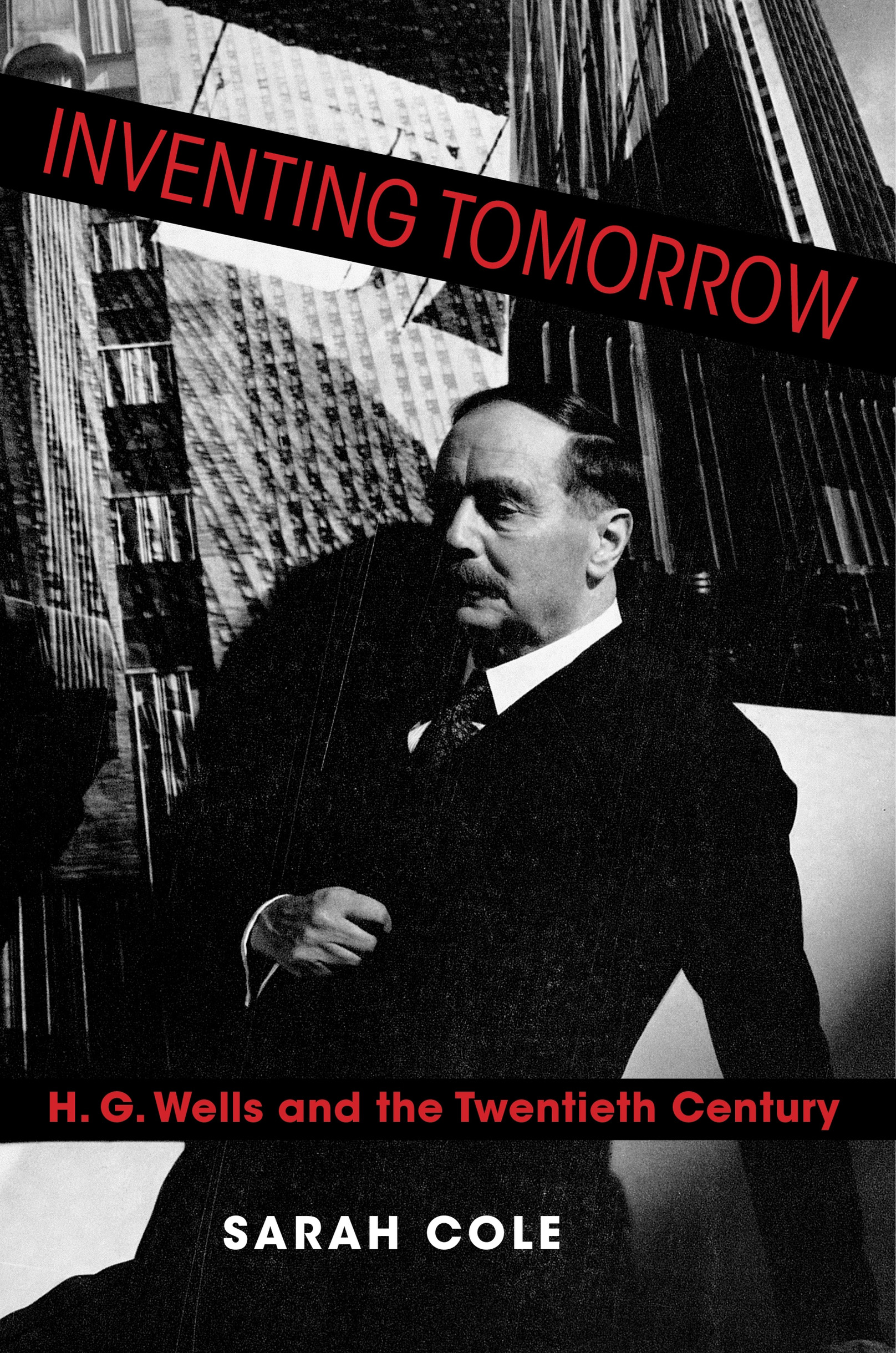Contents
Guide
Pagebreaks of the print version
Inventing Tomorrow
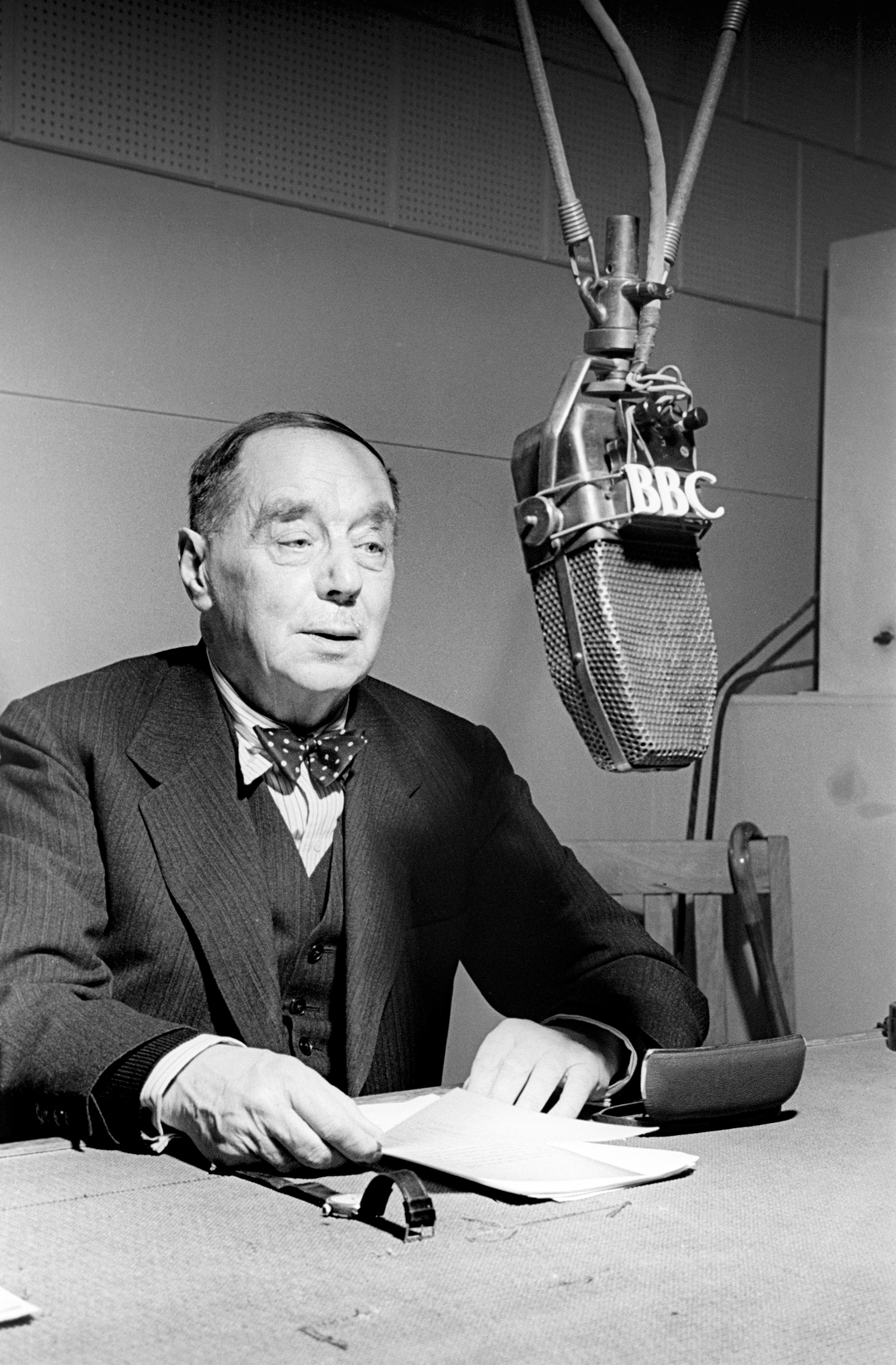
H.G. Wells for the BBC Home Service, 1943.
Copyright BBC Photo Library.
Inventing Tomorrow
H. G. Wells and the Twentieth Century
Sarah Cole
Columbia University Press
New York

Columbia University Press
Publishers Since 1893
New YorkChichester, West Sussex
cup.columbia.edu
Copyright 2020 Sarah Cole
All rights reserved
E-ISBN 978-0-231-55016-1
Library of Congress Cataloging-in-Publication Data
Names: Cole, Sarah, author.
Title: Inventing tomorrow : H.G. Wells and the twentieth century / Sarah Cole.
Description: New York : Columbia University Press, [2020] | Includes bibliographical references and index.
Identifiers: LCCN 2019006298 (print) | LCCN 2019016439 (ebook) | ISBN 9780231550161 (e-book) | ISBN 9780231193122 | ISBN 9780231193122 (cloth: alk. paper) | ISBN 9780231550161 (e-book)
Subjects: LCSH: Wells, H. G. (Herbert George), 18661946Criticism and interpretation. | English fiction20th centuryHistory and criticism. | Modernism (Literature)Great Britain.
Classification: LCC PR5777 (ebook) | LCC PR5777 .C58 2020 (print) | DDC 823/.912dc23
LC record available at https://lccn.loc.gov/2019006298
A Columbia University Press E-book.
CUP would be pleased to hear about your reading experience with this e-book at .
Cover design: Julia Kushnirsky
Cover photograph: GRANGER
For Freddie and Anna

Contents
I f there is one thing that H. G. Wells teaches, it is that we are never alone; we are connected in a thousand ways to one another and we gain our most profound significance through these attachments. Writing this book has powerfully reinforced this insight. I am incredibly fortunate to have benefited from the deep engagement and warm encouragement of many friends, fellow scholars, and research institutions. It is a great pleasure to take a moment to offer thanks to some of those who have made this book possible.
Many colleagues at Columbia University have contributed to my thinking and have acted as inspirations, mentors, readers, and allies. I have learned immensely from dear friends in the Department of English and Comparative Literature, who have helped to shape this book through many conversations over the years and through their astonishing intelligence. I wish in particular to thank Rachel Adams, Nicholas Dames, Austin Graham, Matthew Hart, Jean Howard, Marianne Hirsch, Edward Mendelson, Julie Peters, Bruce Robbins, Gauri Viswanathan and William Worthen. The Department of English and Comparative Literature has been an unstinting source of generosity and guidance, and I am immensely appreciative to have it as my academic and institutional home.
My intellectual home over the last two decades has been the modernist studies community. I wish to thank the Modernist Studies Association for many opportunities to present my work and to learn from so many wonderful scholars at the annual convention; the NYNJ Modernism Seminar for providing exceptionally stimulating and wide-ranging discussion among local modernists and distinguished visitors at our biannual meetings; the 20/21 colloquium in the Department of English and Comparative Literature, where graduate students and faculty test out new ideas; and the many departments, conferences, and colloquia that have generously invited me to present work on this project.
My colleagues in modernist studies are a source of unending creativity and spirit, and their intellectual energy has sustained my work on Wells. It would be hard to acknowledge them adequately. Several of these brilliant and gracious peers warrant my warmest thanks for their attention to this book and for their intellectual companionship: Robert Caserio, Santanu Das, Jed Esty, Doug Mao, Kate McLoughlin, John Plotz, Victoria Rosner, and Rebecca Walkowitz. Two readers in particular have helped me to conceive and shape this project at every stage, and I wish to express my deep gratitude for their friendship and wisdom. Vincent Sherry has been a reader, critic, and supporter, lending his sparkling intelligence to the project at every stage. And Paul Saint-Amour has aided in untold ways. I have learned from his luminous ideas as an astute reader and an unparalleled friend.
I am indebted to many wonderful students at Columbia who have helped this book along, including those adventurous undergraduate and graduate students who were curious enough to enroll in courses on H. G. Wells, and many others who have shared in this project as part of our modernist community. I wish particularly to thank Nolan Gear, Will Glovinsky, Shannon Jilek, Diana Rose Newby, Jonathan Reeve, Kate Trebuss, and Ameya Tripathi for their truly superb work as research assistants. I also owe a great debt to Jessica Lilien, who lent her expert help in the last stages of publication.
I am thrilled to be publishing Inventing Tomorrow with Columbia University Press. Philip Leventhal has been an absolutely ideal editor: wise, attentive, practical, and a great enthusiast for the project. I am enormously grateful for his time and thoughtfulness at every stage. Robert Fellman has been a superb copy editor, and I appreciate Michael Haskell for shepherding the book through production.
Special thanks go to the John Simon Guggenheim Foundation for its support in providing a fellowship. I wish also to thank the New York Public Library Berg Collection for the use of its materials, and the wonderful staff at the University of Illinois Rare Book and Manuscript Library, whose Wells collection is an extraordinary trove. The H. G. Wells Society has offered enthusiastic support, and I am indebted to its members for their work in sustaining scholarship on Wells.
Finally, I express my deepest gratitude for my closest friends and my family. It is hard for me to imagine writing a book, or doing anything else, without the friendship of Ramie Targoff, a participant and partner at every step. My sister and brother, Felicia Cole and Adam Cole, are great allies and enthusiasts. Rosalind Vogelbaum, my mother-in-law, has been a wonderful part of my family here in New York and a tremendous help in the ongoing effort to balance work and family. I am grateful beyond words to my loving parents and step-parents, Robert Cole and Eleanor Swift, Belle Cole and the late David Wilson, for their boundless generosity and for the unconditional support they have lavished on me. And finally, it is a joy to acknowledge the three people who fill my world with love, inspiration, and humor: my husband, Martin Aaron Vogelbaum, and my children, Frederick Cole Vogelbaum and Anna Elizabeth Vogelbaum. I dedicate this book to Freddie and Anna, who have brought me more happiness, every single day, than I would have thought possible. If there is a tomorrow to invent, it will be for them.

Parts of have been previously published: H. G. Wells and the Wartime Imagination, Modernist Cultures 12, no. 1 (2017): 1635; and Civilians Writing the War: Metaphor, Proximity, Action in The First World War: Literature, Culture, Modernity , ed. Santanu Das and Kate McLoughlin (London: British Academy, 2018), 99113. I thank Edinburgh University Press and the Publications of the British Academy for permission to republish.


